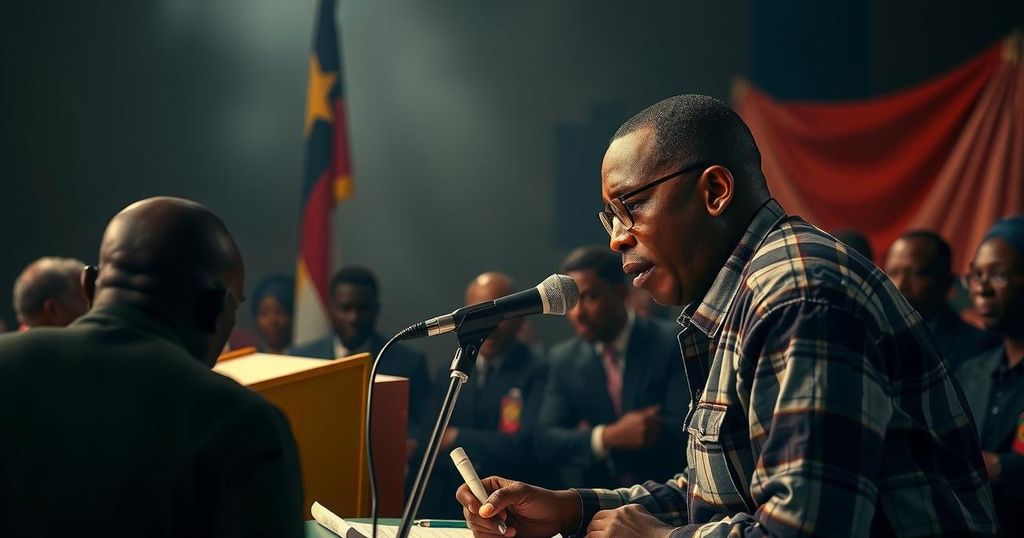Ghana’s upcoming December 7 elections will see a highly competitive race between former President John Mahama and current VP Mahamudu Bawumia. Economic recovery post-debt crisis and job creation are key campaign issues, alongside public frustrations with existing governance. Voter sentiments show a desire for change, which could influence the traditionally binary party landscape. The election is expected to be a critical moment for Ghana’s political future.
The upcoming presidential election in Ghana is poised to be a fiercely contested event, scheduled for December 7. Former President John Mahama from the National Democratic Congress is facing off against current Vice President Mahamudu Bawumia of the New Patriotic Party. Both candidates aim to address the country’s economic struggles, exacerbated by the COVID-19 pandemic and a significant external debt of $30 billion. Mahama has proposed a 24-hour business environment to create jobs and stimulate economic recovery, while Bawumia emphasizes his commitment to strengthening the economy amidst challenging conditions.
Ghana has predominantly been ruled by either the National Democratic Congress or the New Patriotic Party since 1992, with minor parties struggling to gain traction. University of Ghana lecturer Kwame Asah Asante notes that, historically, these two parties are expected to dominate the electoral landscape. However, voter sentiment appears to be shifting, with some expressing a desire for change, as exemplified by undecided voter Angela Ofori’s sentiments of having seen no substantial party change since the return to democracy.
Nana Kwame Bediako, an independent candidate, has garnered attention among the youth but has not yet made a significant impact to change the electoral outcome. His platform includes goals for eco-friendly policies aimed at enhancing Ghana’s economic and environmental sustainability. Critical issues influencing the election encompass infrastructure, health, education, corruption, and notably, the economy. Increasing inflation, which has reached as high as 54%, poses a significant challenge for Bawumia, leading many voters, such as Wisdom Gavor, to consider Mahama’s proposal of a 24-hour economy with increased job opportunities.
The persistent illegal mining activities, referred to as “galamsay,” threaten both agricultural land and cocoa production, intensifying public discontent against the current government. While some voters credit the ruling party for innovations like Bawumia’s digitization policies—which have facilitated online job creation—many remain skeptical. This election presents a critical juncture for Ghana, with polls indicating a possibility for close outcomes. The underlying economic issues will undoubtedly be a decisive factor as Ghanaians head to the polls.
This article outlines the key dynamics and implications surrounding Ghana’s presidential election. With the country’s history of governance primarily dominated by the National Democratic Congress and the New Patriotic Party since 1992, the current political landscape has become increasingly competitive. Economic challenges following a major debt crisis and the ongoing impacts of the COVID-19 pandemic are central to the candidates’ campaigns, as they attempt to address voter concerns. This context provides vital information to understand the significance of the election outcomes for Ghana’s future.
The forthcoming election in Ghana is expected to be a closely fought competition between the established parties, taking place on December 7. With economic issues taking precedence, candidates John Mahama and Mahamudu Bawumia are prioritizing strategies to stimulate growth and job creation. While the traditional party system remains resilient, the increasing desire for change among voters could lead to a more significant electoral impact from minor parties. Ultimately, the engagement and decisions of the electorate will play a crucial role in shaping Ghana’s political and economic landscape moving forward.
Original Source: www.voanews.com






